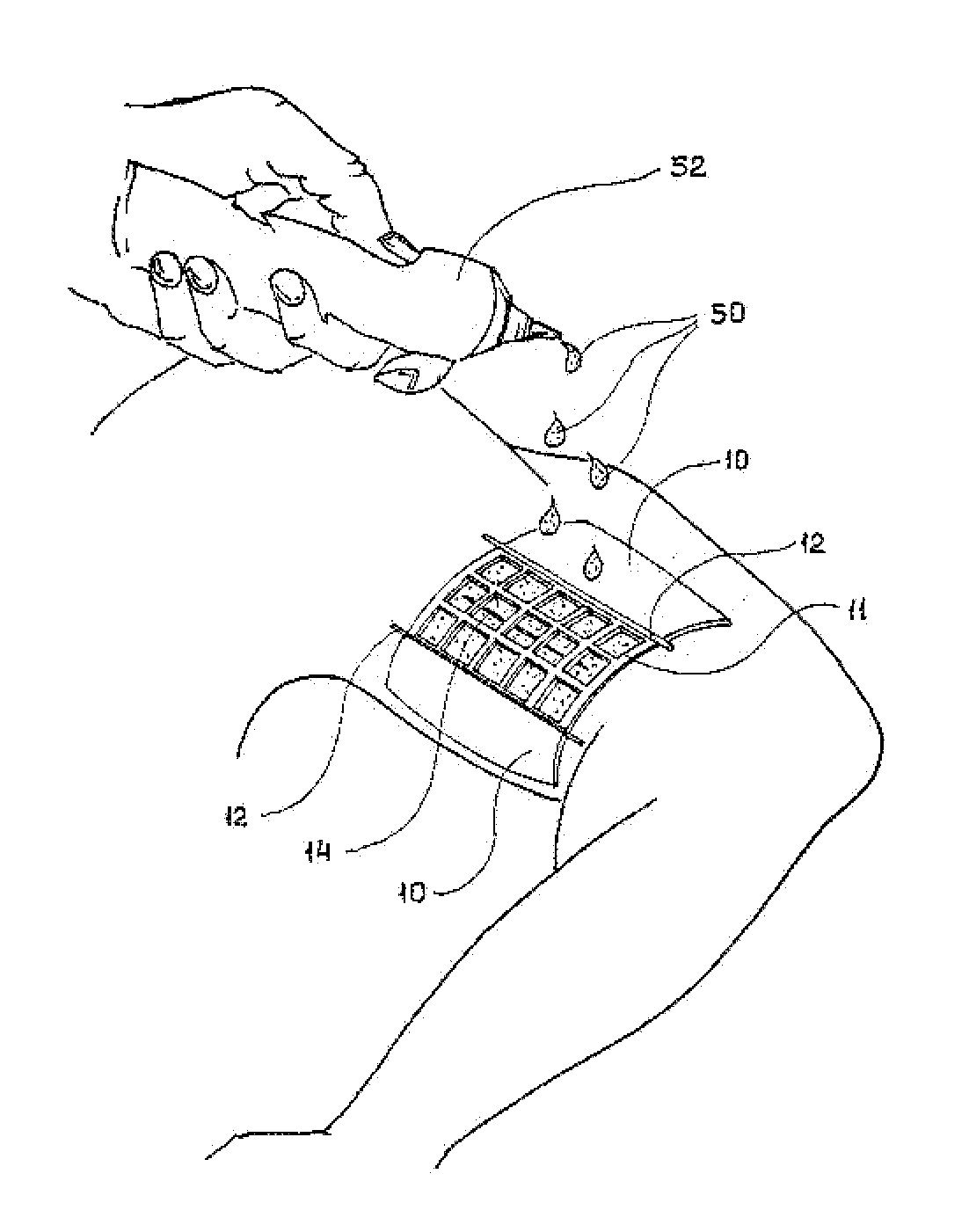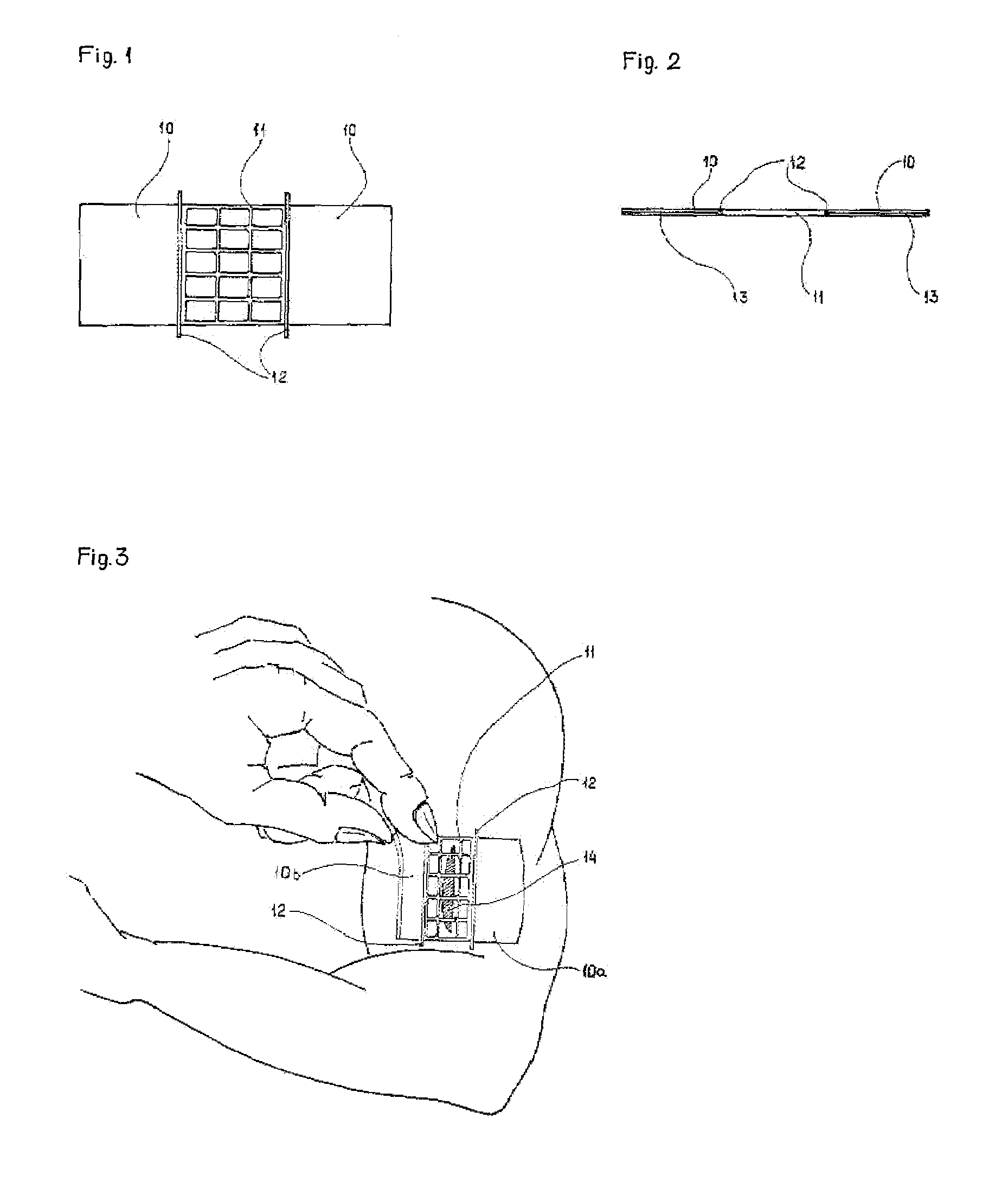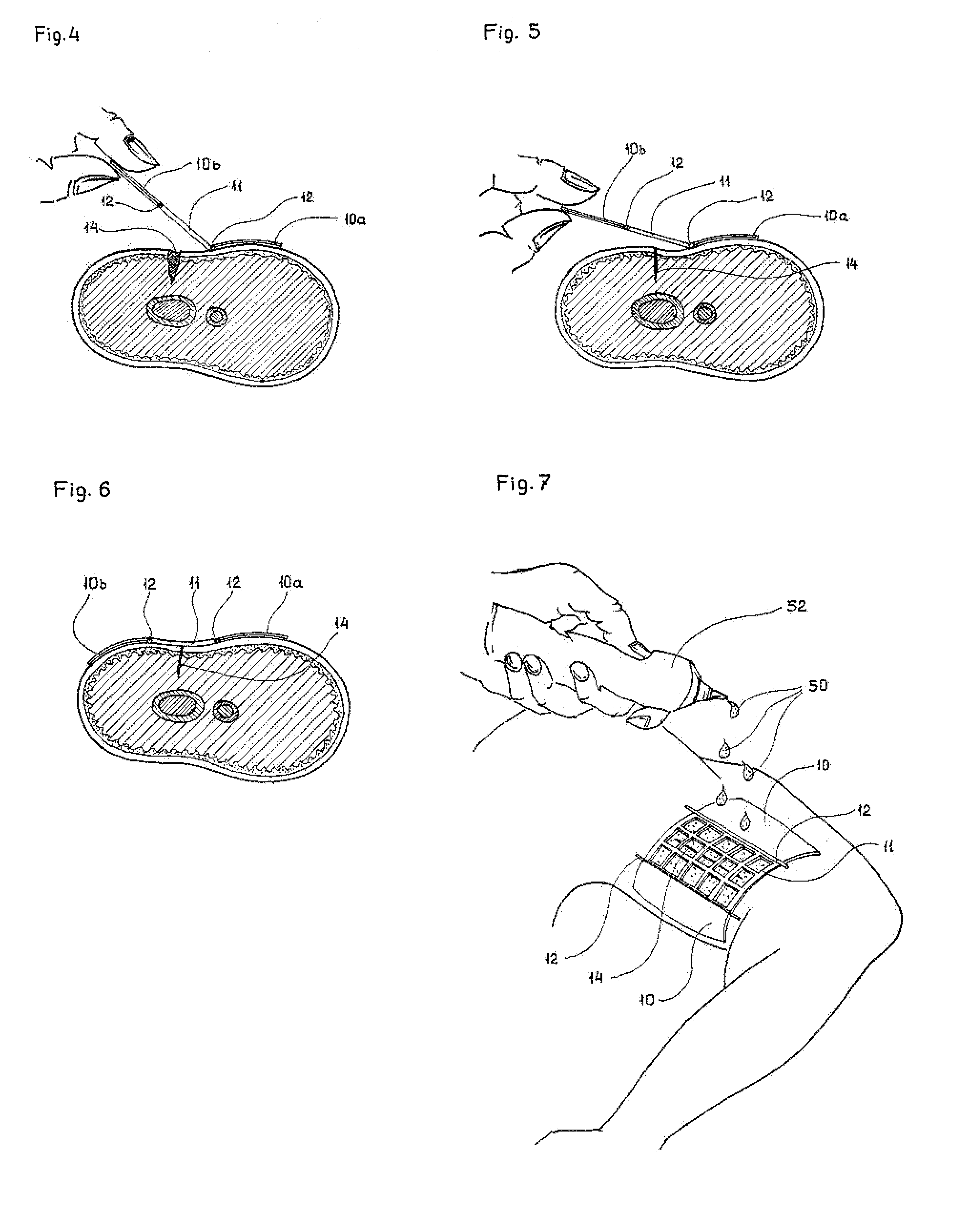Surgical bandage and methods for treating open wounds
- Summary
- Abstract
- Description
- Claims
- Application Information
AI Technical Summary
Benefits of technology
Problems solved by technology
Method used
Image
Examples
Embodiment Construction
[0034]FIG. 1 is a top view of one embodiment of a surgical bandage according to the present invention. The surgical bandage is preferably packaged in a sterile condition within a package and distributed as a single-use surgical bandage.
[0035]The surgical bandage includes two solid tape end segments 10, a central, non-absorbent segment of netting 11 and two “pull strings”12. FIG. 2 is a side view of the surgical bandage shown in FIG. 1 that shows the two end segments of solid tape 10, the central segment of netting 11, the “pull strings”12 and the protective layer that covers the adhesive side of the solid tape segments and the adhesive side of the central segment of netting 11. Even though FIG. 1 shows netting 11, alternatively, the netting 11 could be replaced with parallel fibers (see FIG. 9) or a thin layer with interstices (see FIG. 10). That is, the netting 11 could be replaced with any type of lattice structure.
[0036]A visual demonstration of the use of the surgical bandage is...
PUM
 Login to View More
Login to View More Abstract
Description
Claims
Application Information
 Login to View More
Login to View More - R&D
- Intellectual Property
- Life Sciences
- Materials
- Tech Scout
- Unparalleled Data Quality
- Higher Quality Content
- 60% Fewer Hallucinations
Browse by: Latest US Patents, China's latest patents, Technical Efficacy Thesaurus, Application Domain, Technology Topic, Popular Technical Reports.
© 2025 PatSnap. All rights reserved.Legal|Privacy policy|Modern Slavery Act Transparency Statement|Sitemap|About US| Contact US: help@patsnap.com



